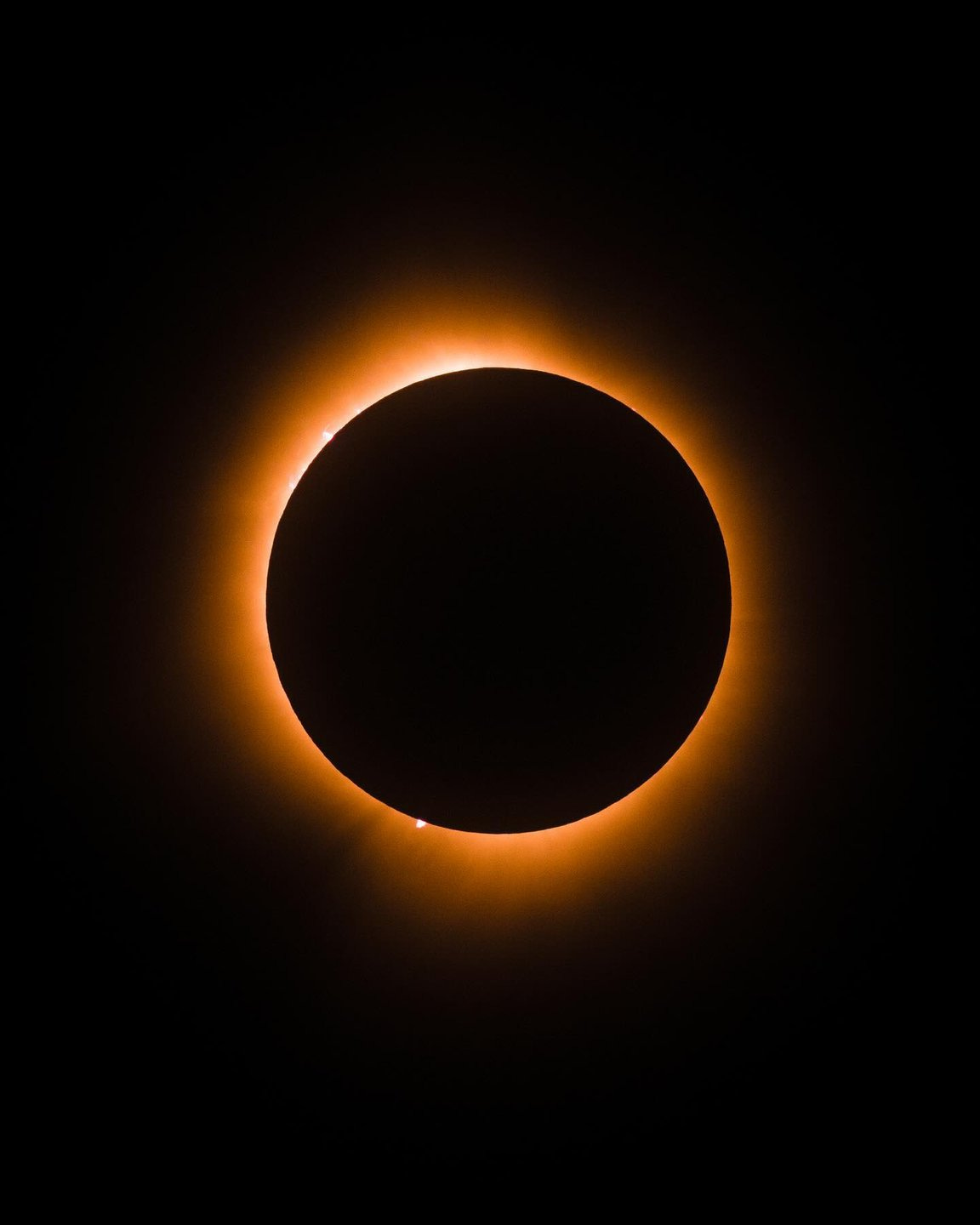
April 14, 2024 — A week ago we drove, and drove. North. The next afternoon, on Monday, after a night at a camp without heat or running water, we drove south, awestruck from the day’s events that included a total solar eclipse and a never-ending string of car tail lights illuminating Vermont’s nighttime roads for hours on end. What should have been a two-hour trip home took more than five.
Our trek north took us to Isle La Motte, one of the northernmost islands in Lake Champlain. We visited friends at a spot that looked out over glistening waters and beyond to a snow-capped Mt. Mansfield, Camel’s Hump, and the stunning beauty of Vermont’s Green Mountains. The eclipse was awe inspiring. As things went dark, Spring peepers began to peep. Ducks started wheeling around. Even some Great Blue Herons got into the act, flapping about overhead as the moon obscured the sun. Nature never ceases to amaze. But, then, the irony of the moment struck.
i·ro·ny1 /ˈīrənē/
a state of affairs or an event that seems deliberately contrary to what one expects and is often amusing as a result.
plural noun: ironies
"the irony is that I thought he could help me"
Somewhere between the light and the darkness we found ourselves mired in traffic trying to travel south on that post-eclipse Monday afternoon along with what has been reported to be 60,000 cars traveling the roads that day in Vermont. Here’s where I started doing some calculations. I needed to exercise my gray matter and wondered how much gasoline we had collectively burned in one day chasing north to stare at the greatest source of fossil-free fuel available to us. Chasing the sun by burning fossil fuel. Looking up for less than four minutes. The irony of what we’ll do for fun struck me full in the face, as if I’d just struck a low-flying Canada goose with my windshield. It resonated—and hurt.
Here’s my math. Please, anyone out there, correct me if I’ve erred. I’ll update my calculations below with your formula if it’s more accurate than mine.
Let’s use 25 miles per gallon as an average for all cars on the road. 60,000 cars. Traveling an average of 100 miles north and 100 miles south through the pristine Vermont landscape to see the eclipse. That’s 200 miles divided by 25, or 8 gallons of gas used per car. Multiply that by 60,000 cars and we get 480,000 gallons of gasoline burned. All to watch a clean energy source go dark for a few minutes. Was it worth it?
A gallon of gas equals about 20 pounds of CO2. Thus, we emitted 480,000 multiplied by 20, or 9.6 million pounds of CO2, to watch our greatest renewable energy source go dark. We didn’t do anything but drive, burn gas, and watch. Sure, there are the economic benefits of spending money to buy gas, food, beverages, overnight accommodations, snacks, t-shirts, hats, sunglasses, sunscreen, who knows what else, maybe car repairs, but was it worth it. Is pushing another 9.6 million pounds of CO2 into our atmosphere worth three and a half minutes of darkness to benefit the economy? Or just to have an experience? I feel like I’m operating wholly in the dark on this one. What’s the rational explantation for our actions? Or, our inaction?
This whole event reminds me of a poem I once translated, written many years ago by a profound and extraordinary world leader. It reads, in part:
The April sun shines on my reflections. I ponder our time. Along the path a child rides a tricycle. Then comes a gentle incline, at the top he pedals powerfully as his pedals begin to spin wildly, and the pedals whirl about with him swerving, and what will happen. I’m waiting to see, what will happen. We all wait to see, what will happen, how might he stop the atomic bike of today’s civilization designed by a perplexing economic machine, that spins inexorably, just as we were once vital, strong and spinning with life, but today with our eyes wide open we just watch and wait. What will happen?
I wonder, what’s the price of inaction? Of watching and waiting, with our eyes wide open. While burning gas to see the moon eclipse the sun for less than four minutes. What’s the cost of watching our nearest star go dark as we feed the economic machine of today’s civilization in our quest for enjoyment and diversion? Is this the folly of our time?
The irony, sadly, is not lost on me.
Dave Celone writes from Sharon, Vermont. His day job is as vice president of alumni relations and development at Vermont Law and Graduate School, one of the foremost environmental law and policy programs in the nation—perhaps the world. Why wouldn’t he question our actions, and our impact on our planet?



Irony indeed, Dave. Thank you for your well-crafted assessment. I stayed home and watched from there.